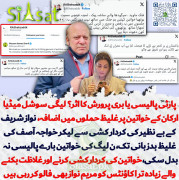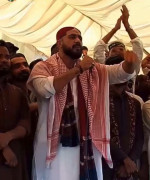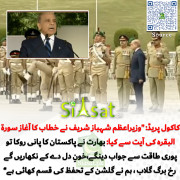THERE WERE LOT OF SUFIS AND SUFI MUSIC IN THE FIRST YEAR OF ABOOBAKR (rzt), People in
Madina used to gather around during night, Sui-Music used to play the mystic and inspiring music.
People used to listen them till dawn and after Dawn prayer they used to go bed. ISnt, CHEEKO???
Excess of every thing is bad. It is in Hadees that in festivals music and dancing were done. Its not allowed for bad purpose. For detail read whole discussion from start. Dont know about first year of first khalifa because in that year I would still be feeling sad without Last Messenger peace be upon him.
Last edited:































